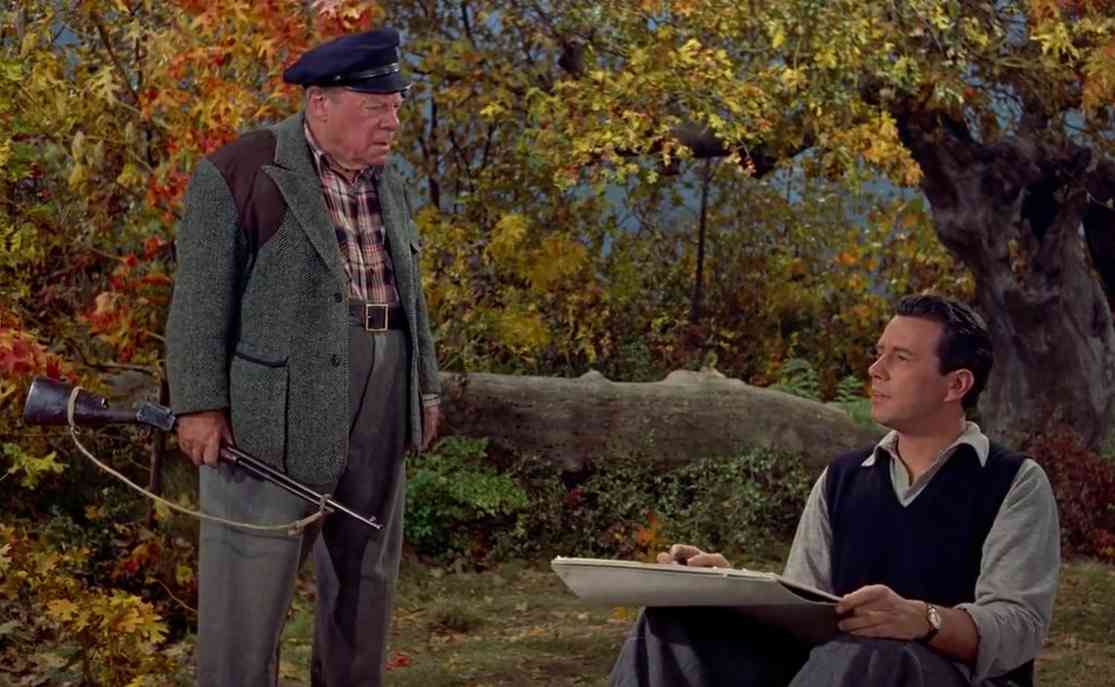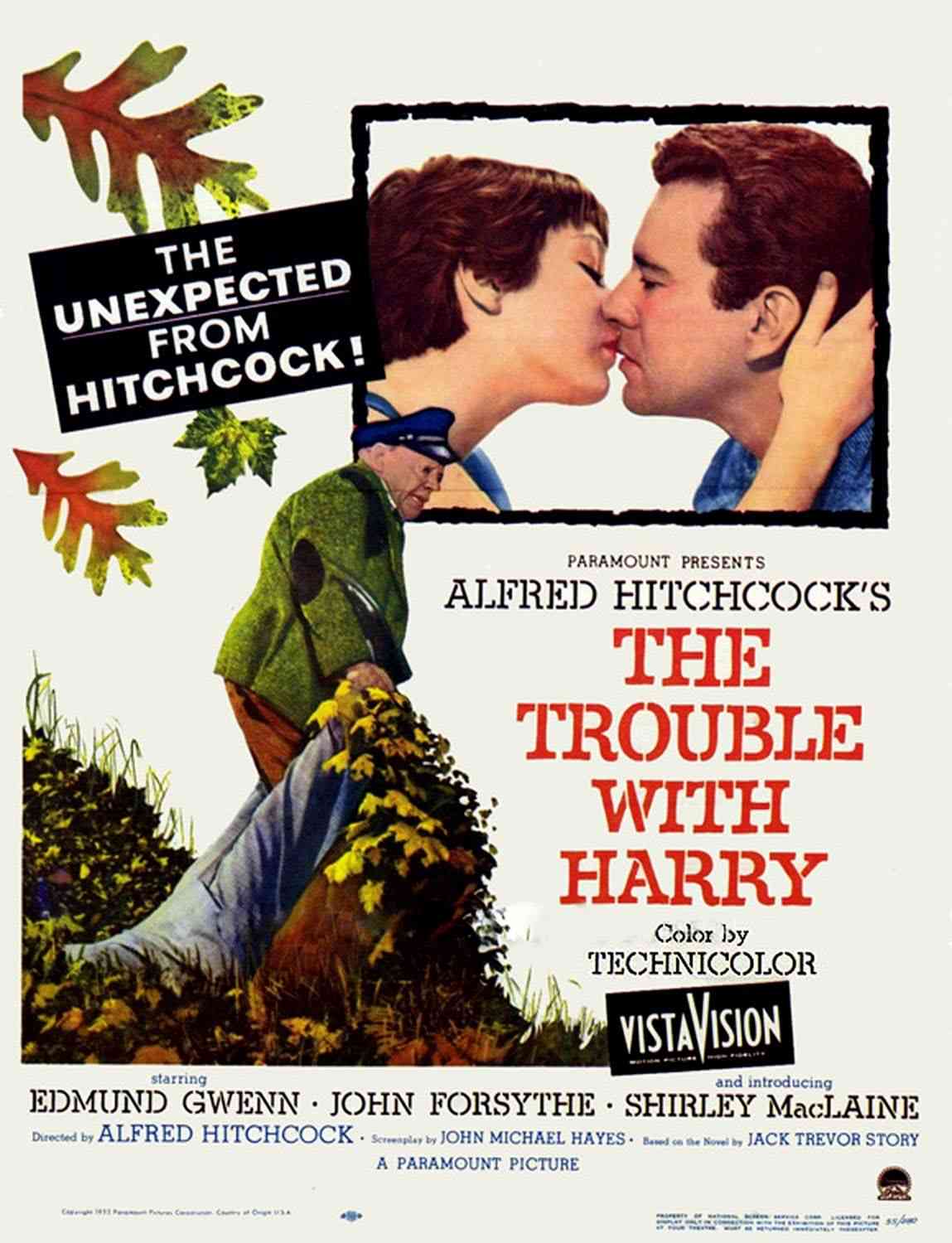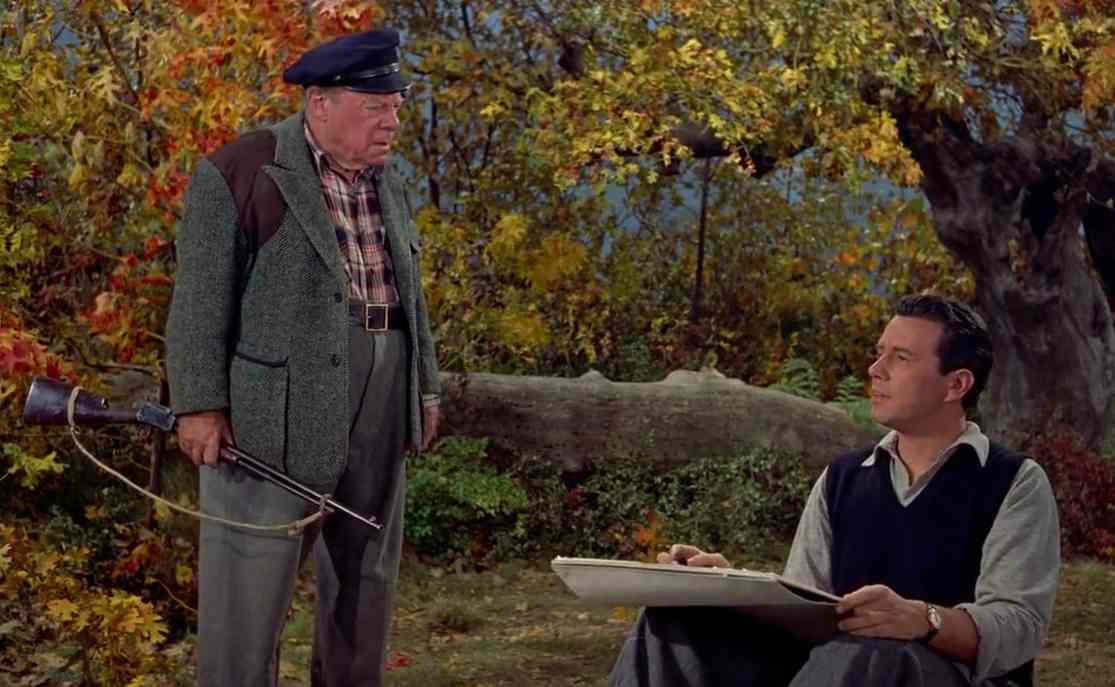The Trouble With Harry (1956)
 Friday, August 29, 2014 at 7:20PM
Friday, August 29, 2014 at 7:20PM 

It's an exciting time for this writer: the 1930s were unexpected, the 1940s were experimental, but the 1950s have always been regarded in my mind as where Hitchcock's masterpieces originate (they should produce a box set entitled "Masterpieces of the Master" and then pay me). I've of course already been through Strangers on a Train from 1950, but I've never witnessed, at least with these less naive eyes, the quintessential films like Rear Window, The Man Who Knew Too Much (remake of his own lesser classic from the 30s), Vertigo, North By Northwest, and.... The Trouble With Harry (or if it were to be made today, There's Something About Harry).
Captain Albert Wiles is out enjoying nature, talking to himself and his gun, and apparently trying to shoot a rabbit while also apparently having the lowest of expectations and the poorest of aim ever after hitting three items that consisted of everything except a rabbit. Two of these items are inconsequential, consisting of a can and sign. The third however goes by the name Harry, and he is dead. While the captain attempts to hide the body, he has the worst luck with a seemingly unstoppable parade of people happening on the body. His luck changes however when for various reasons, no one cares at all for some time, until a local artist with his head in the cloud actually notices the body, but even he doesn't care that much.
Not knowing anything prior to viewing this film, I certainly considered it an oddball piece right away. First (and foremost it seemed to lack Hitchcock's flair for visuals. The film contains many long static takes that are actually beautiful, but it's hard to understand the point and departure for the director (there is usually much more movement). The duality between the setting and the plot could be a reason (i.e. murder in otherwise idyllic setting) which if intentional would fascinating in its own right. Mundane dialogue appears pervasive at first, which is another uncharacteristic trait of the Master. However it's not all strange, as black humor is a mainstay of his (though usually in the subtext) and there are some truly funny moments.

While I struggle with finding meaning beyond the black humor, the acting certainly provides a redeeming quality, One stand out is the Captain played by Edmund Gwenn. Along with (at the time) other no-name actors (Shirley MacLaine, John Forsythe etc.) he provides effective characterization without any star-struck distractions. Reportedly, The Master believed that a "star" was a hindrance to the plot and the story. Whether or not he means the development, of or a hindrance for the audience to deal with is uncertain, but he may be right in both regards. Its true the story certainly doesn't suffer from the lack of star power (Shirley and John would eventually be though). Another certainty is that it was ahead of its time as I'm not sure audiences would've accepted this type of darkly humorous material.
 Comedy,
Comedy,  Hitchcock,
Hitchcock,  Review,
Review,  Thriller in
Thriller in  Hitchcock Chasers
Hitchcock Chasers 


Reader Comments